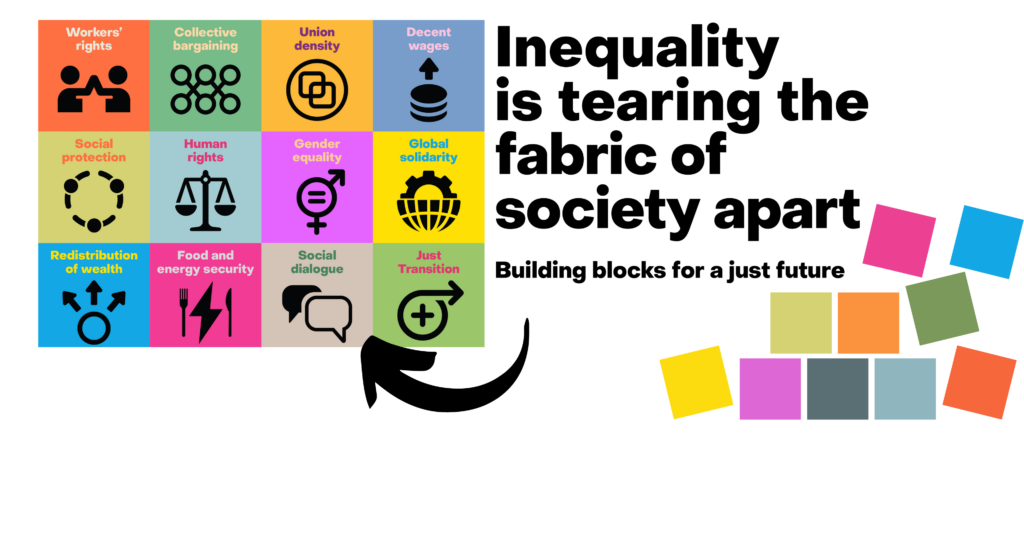The world is experiencing growing inequality. Unless we take action, we risk losing the gains we have made over the past century. IndustriALL and its affiliates are taking coordinated global action to demand a better future.
Atle Høie, industriALL General Secretary"We have a plan for a just future. We need to articulate it, build coalitions and fight for it together!"
Inequality action day statement
| ||||
| ENGLISH | SPANISH | JAPANESE | ARABIC | FRENCH |
United for a just future – Time to pay up! Let’s come together on 7 October and demand our fair share for a just future!
Building blocks for a just future
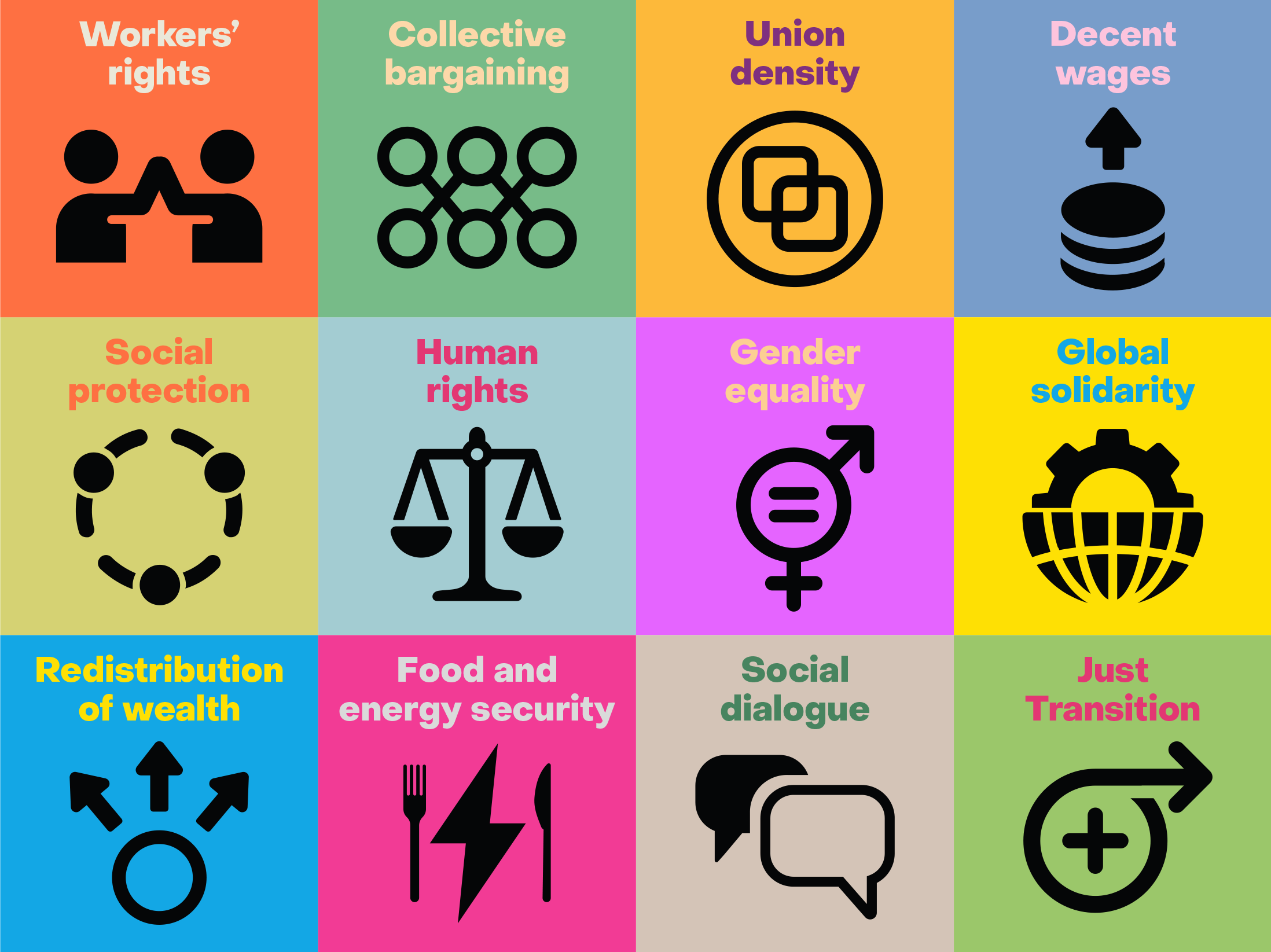
- Fundamental workers’ rights, with full implementation of ILO C87 and C98, and labour laws at national level that allow workers to defend themselves;
- Enhanced collective bargaining coverage, with better conditions delivered by strong unions;
- Union density: we need to organize more workers in more sectors and bring them under the umbrella of collective agreements;
- Decent wages. Workers everywhere need a pay rise that reflects the inflation rate and the sacrifices made during the Covid pandemic; they need wages that reflect their essential part in value creation
- Social protection, including unemployment, sick pay, maternity and paternity leave, funds for retraining and properly funded pensions;
- Human rights due diligence that allows us to hold companies to account using accessible legal mechanisms;
- Gender equality that ensures women have their share of well-paying jobs, and receive equal pay for work of equal value;
- Global solidarity against the scourge of racism, with support for migrants and refugees;
- The redistribution of wealth through tax justice, including a windfall tax on those who made a fortune from Covid, and investment in society;
- Just Transition. We need a funded plan, developed through social dialogue, to manage the transition to net zero and replace carbon-intensive work with quality, green, unionized jobs;
- Food and Energy security to provide sustainable access to basic needs at an affordable cost, especially in relation to the growing number of low-income households;
- Social dialogue that enables all stakeholders, including workers, to engage in national policy formulations to improve their living standards.
What can you and your union do?
Union action is the key to the success of this campaign and the global day of action because we must speak with one voice about the growing crisis of inequality.
Actions may vary due to different national and regional priorities or situations. The actions could be:
Demonstrations
- Marches, demonstrations, public meetings and creative street actions
Media campaign
- Creating online resources on the problem of inequality and ways to solve it
- Placing opinion pieces and getting coverage from local and global media
- A social media campaign
- An online event, such as a webinar
Multinational campaign
- A targeted global campaign against a multinational company identified as contributing to growing inequality;
- A collective bargaining campaign to win better conditions from a targeted company.
- Organizing campaigns that put workers issues connected to inequality
Political campaign
- Lobby governments and politicians with a clear set of demands around inequality;
- Campaigning for political candidates who offer solutions to the crisis.
What kind of action is your union planning to take on 7th of October?
If the action cannot be taken on 7 October, unions can take action on another day, preferably between 28 September and 18 October.
Campaign materials
What are the main issues concerning inequality in your sector or country? Download your choice of posters below in various languages adressing your union's issues.
Don't forget to share your actions with us by using the hashtag #JustFuture
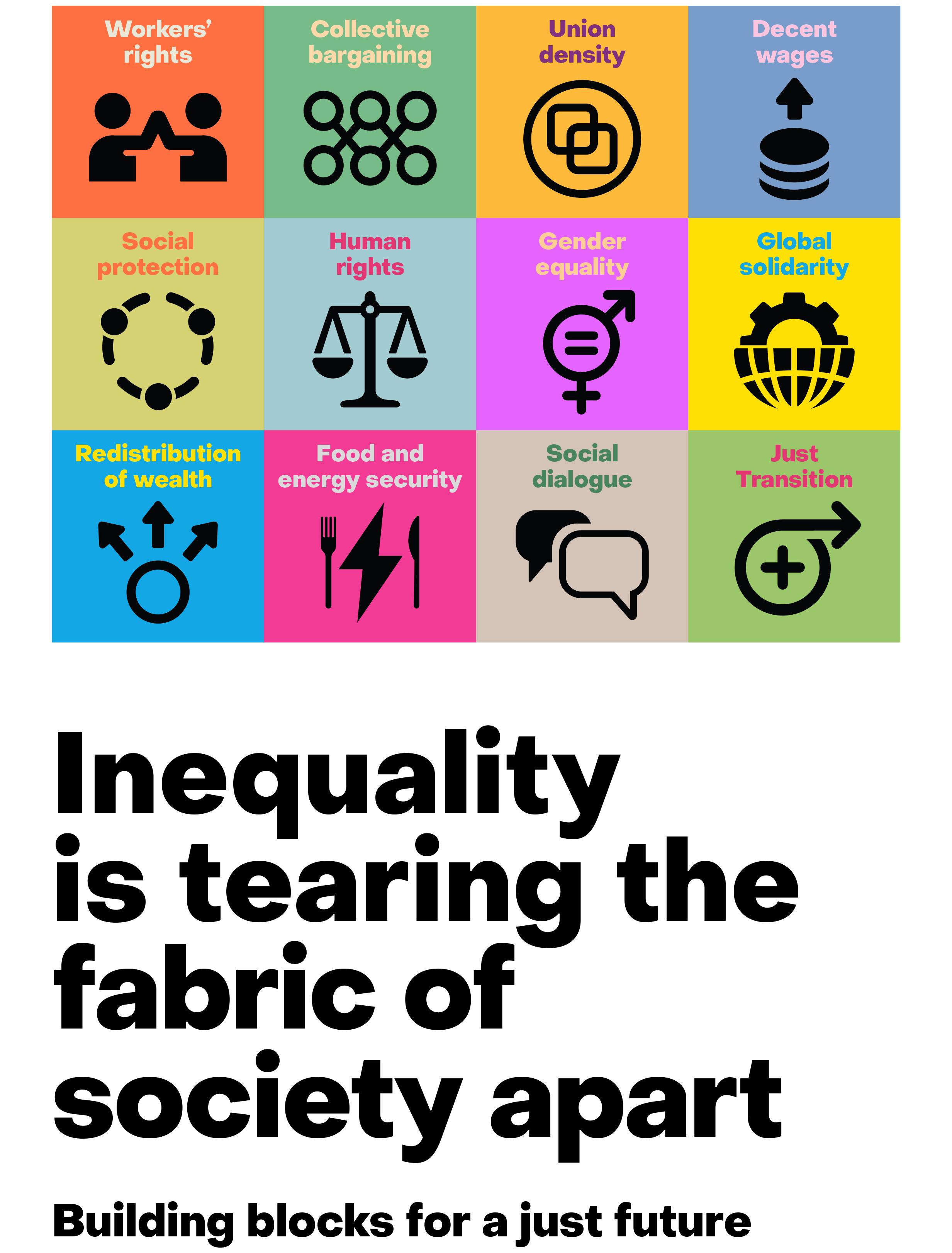 | 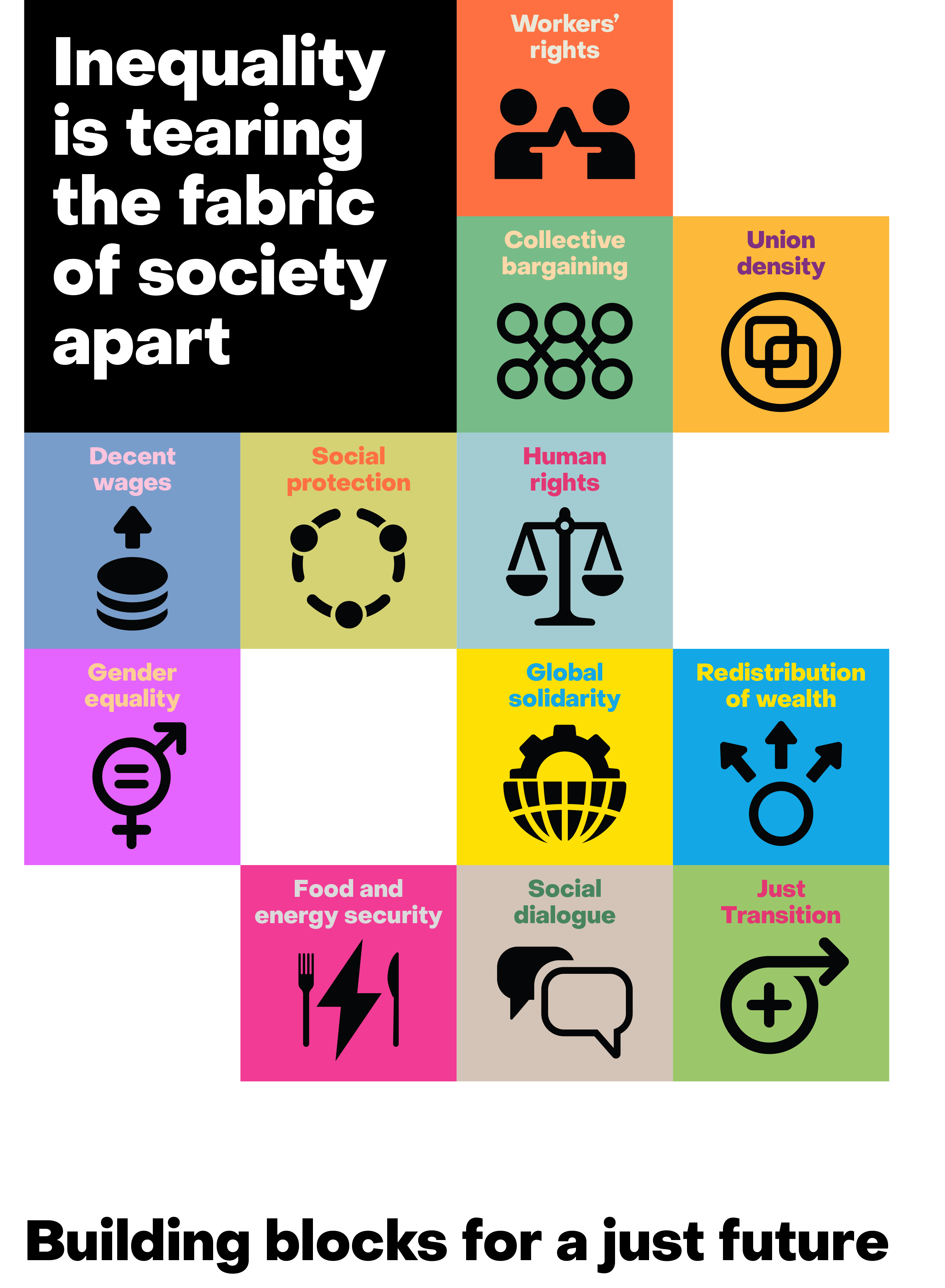 | 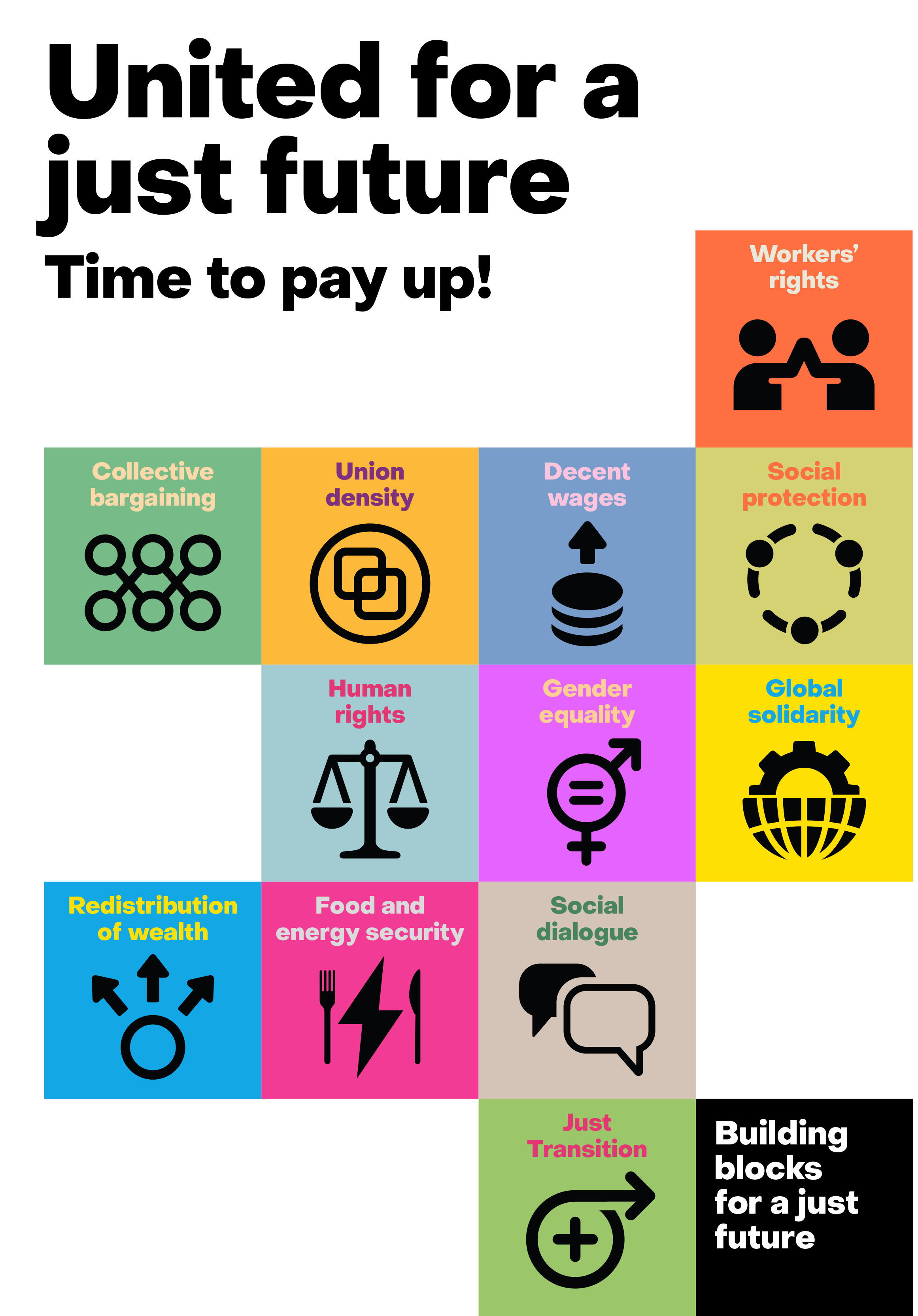 | 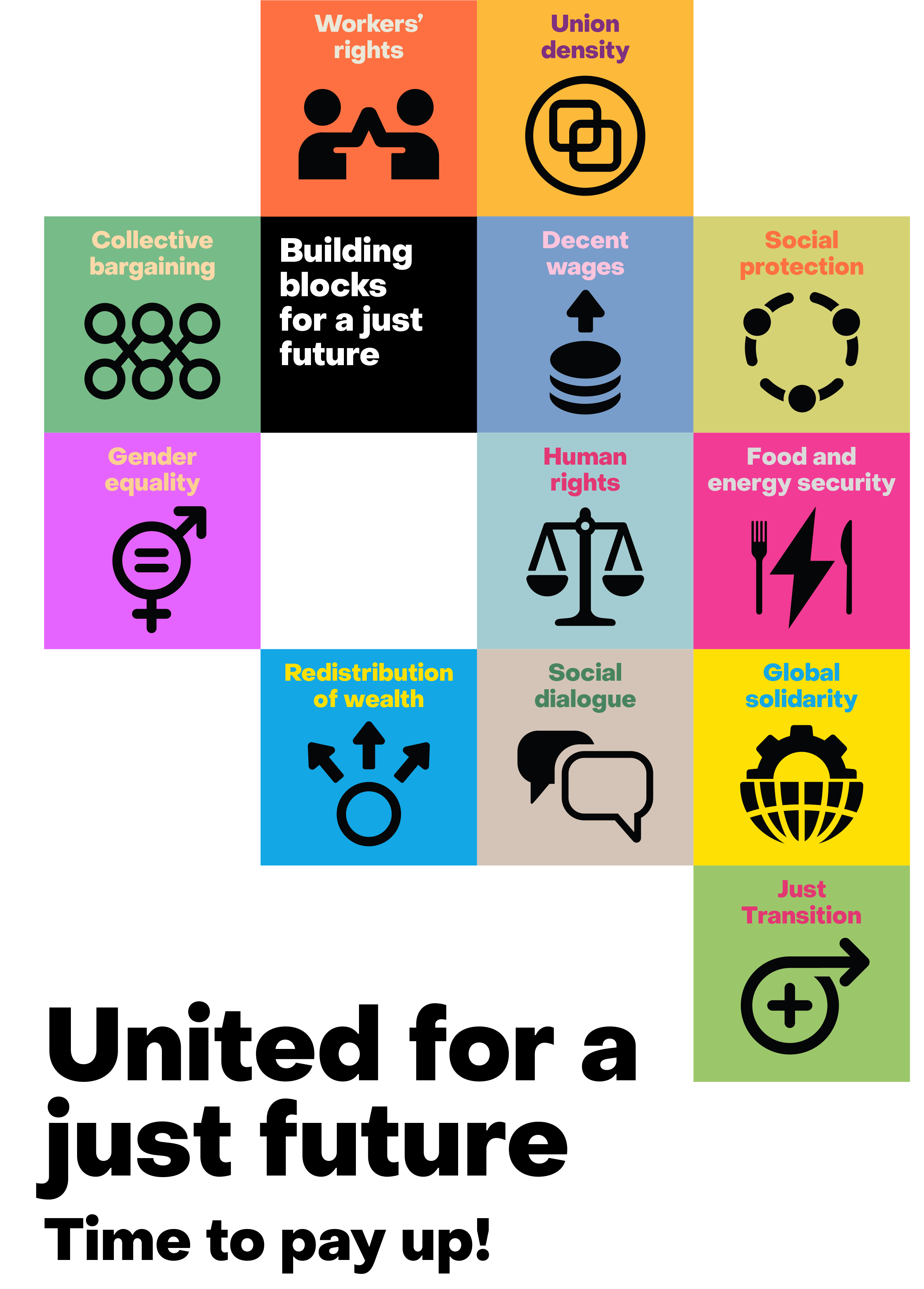 |
| ENG FRA SPA | ENG FRA SPA | ENG FRA SPA | ENG FRA SPA |
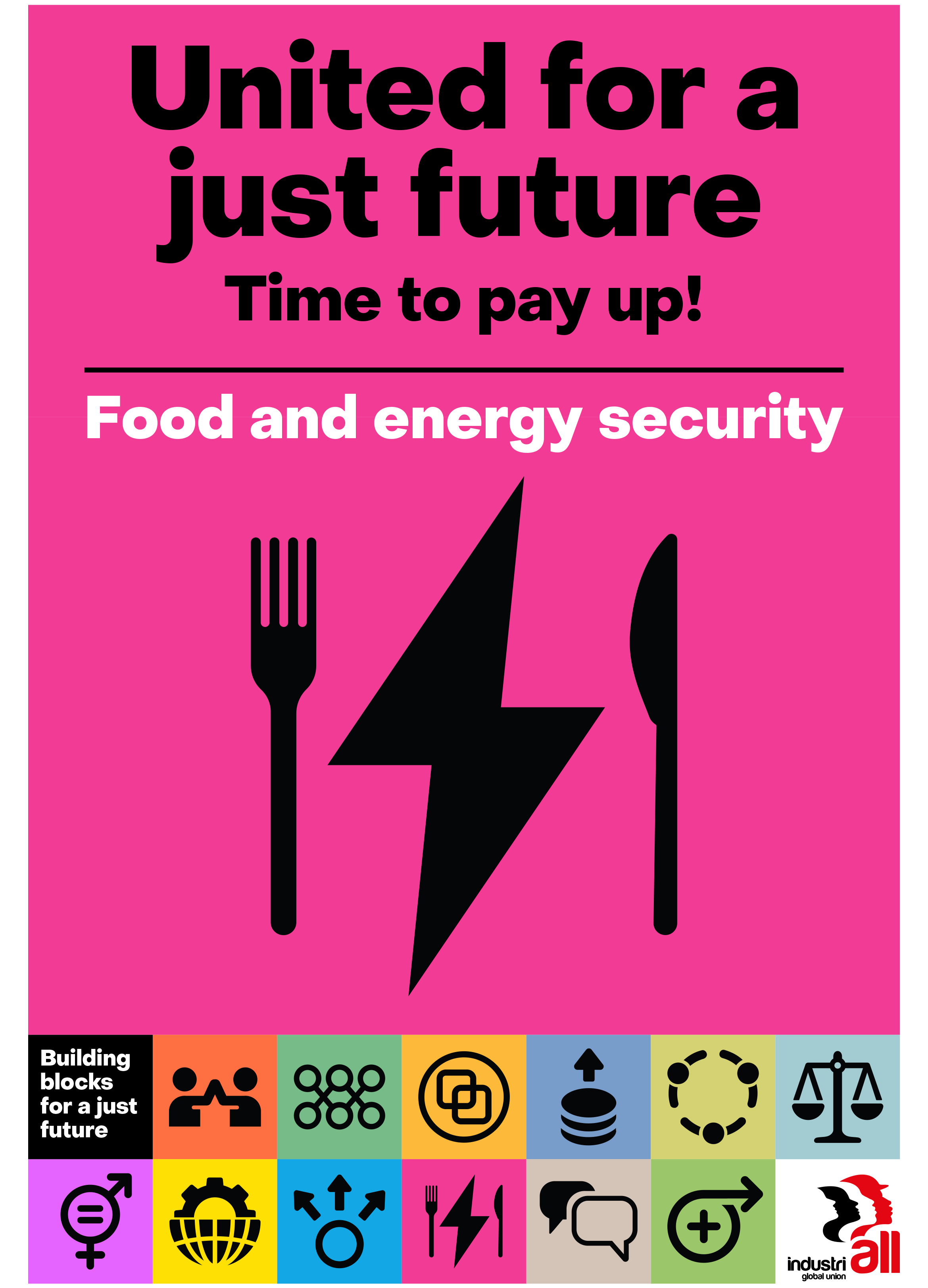 | 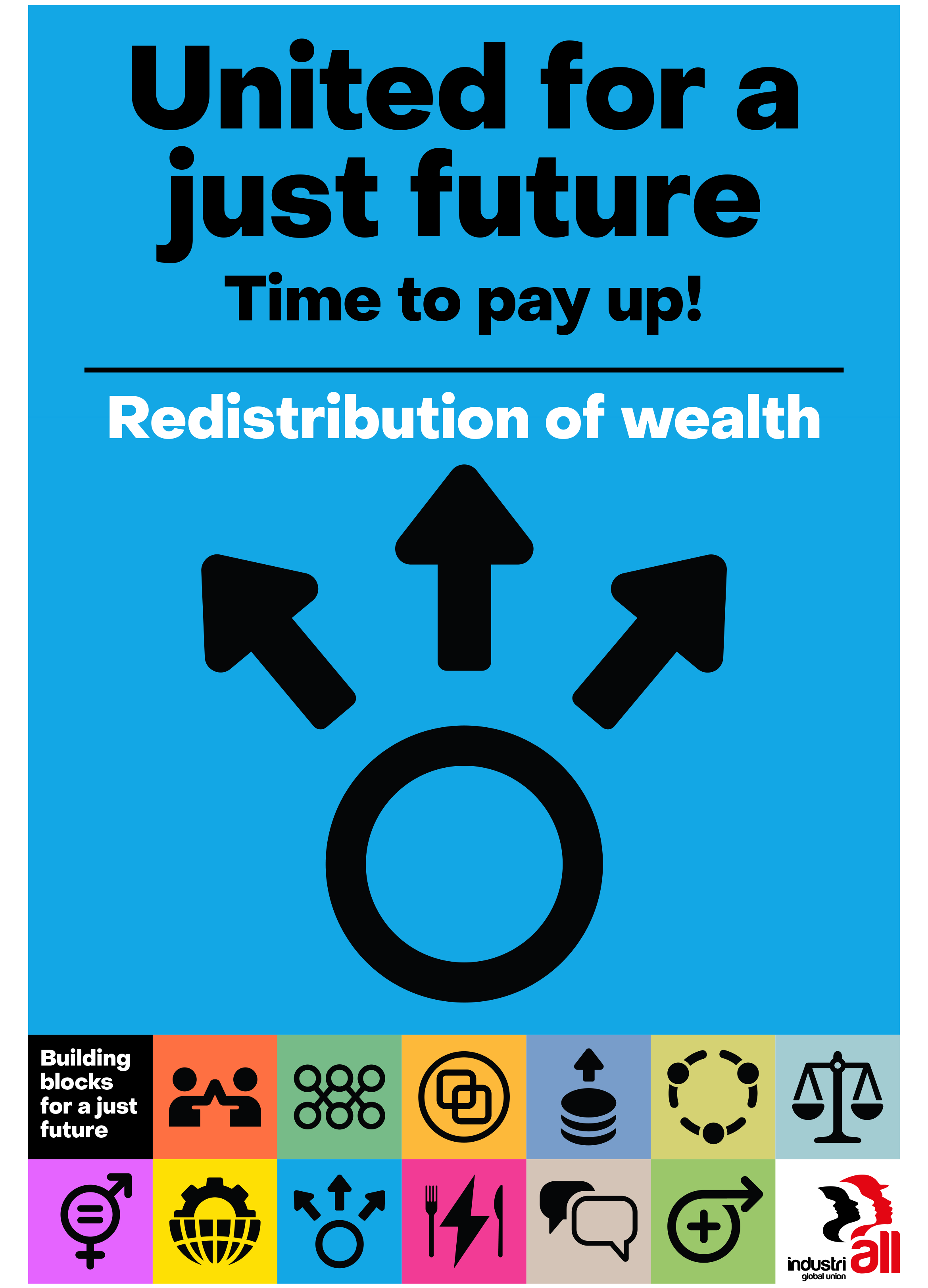 | 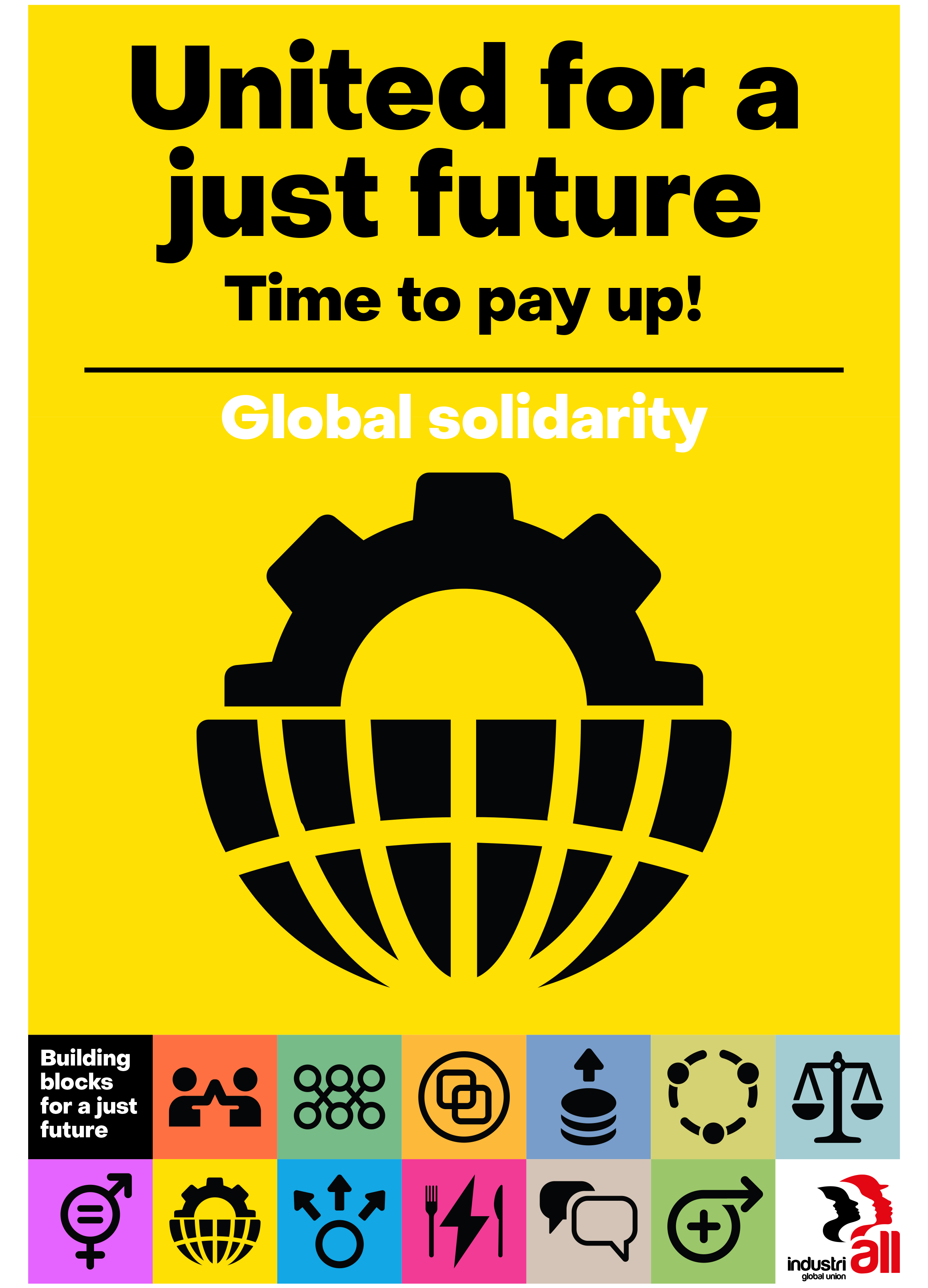 | 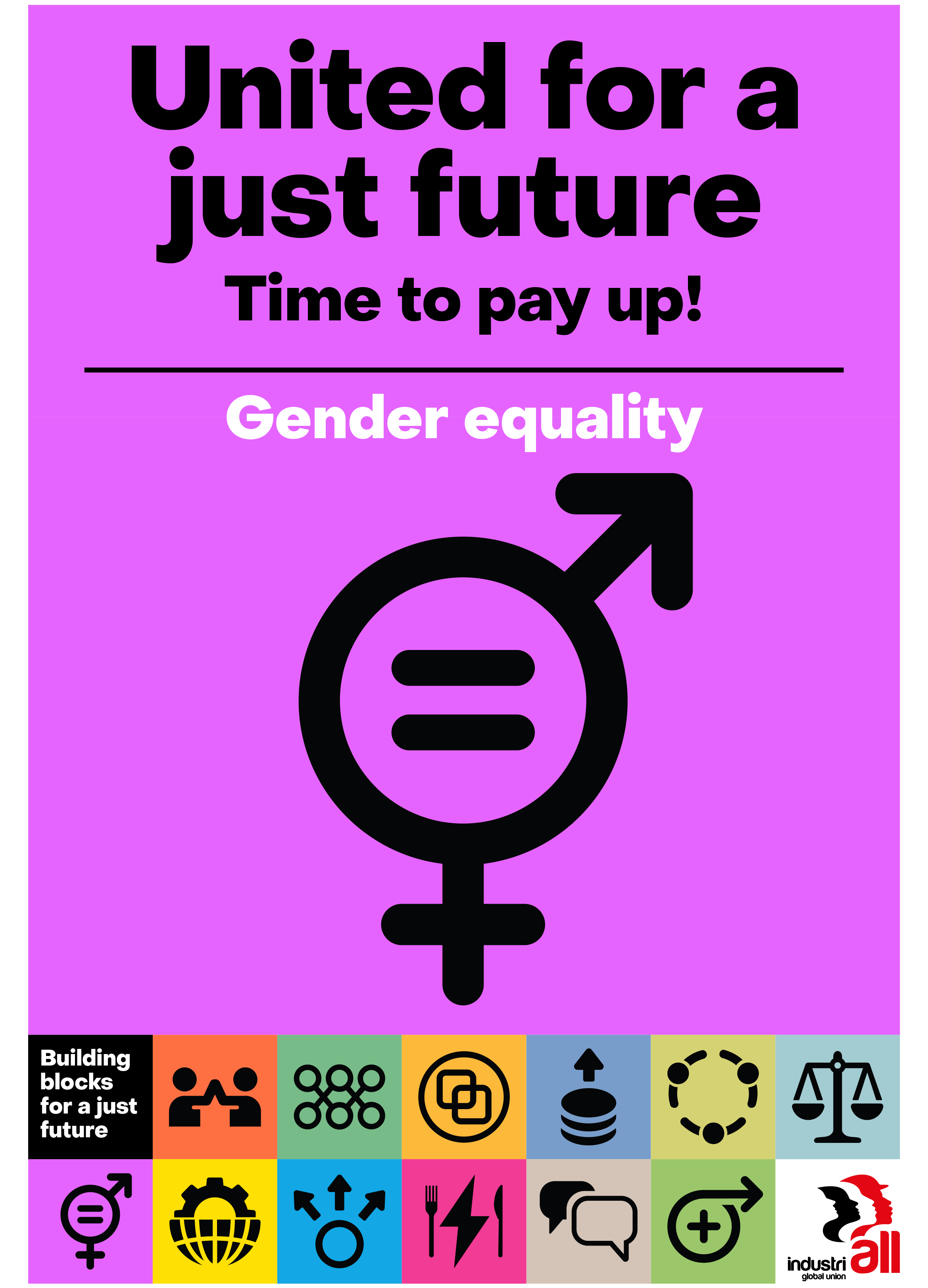 |
| ENG FRA SPA | ENG FRA SPA | ENG FRA SPA | ENG FRA SPA |
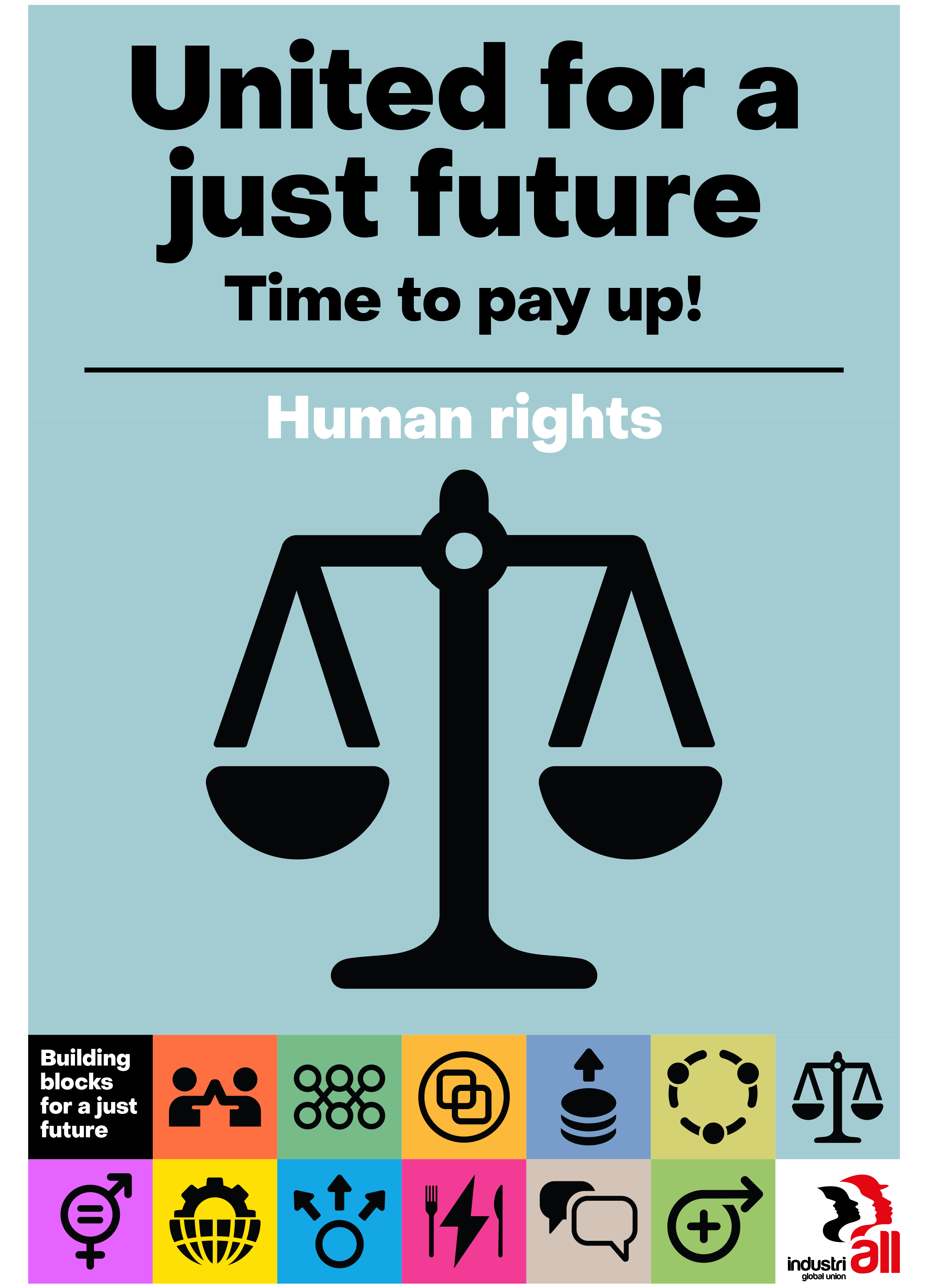 | 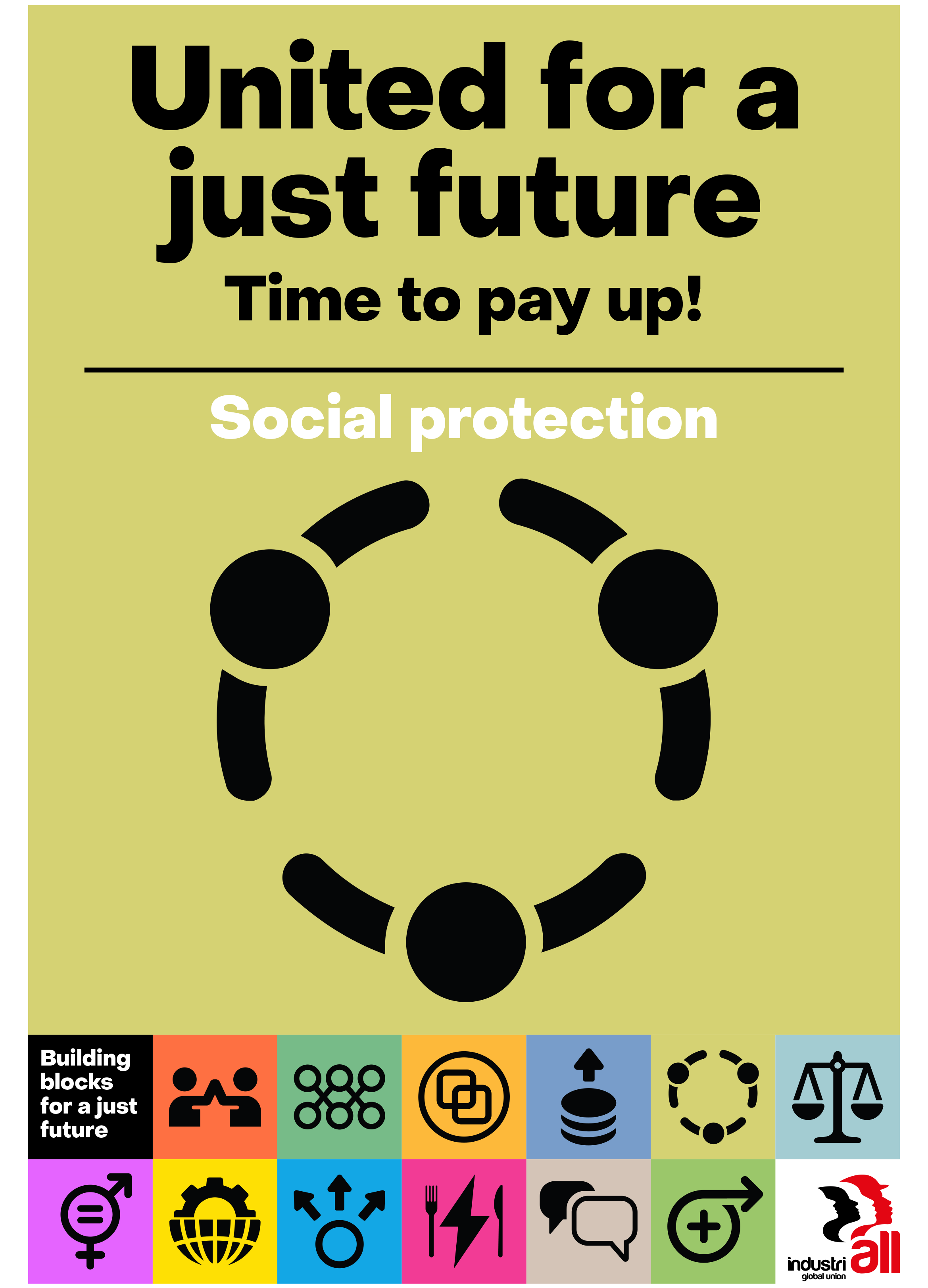 | 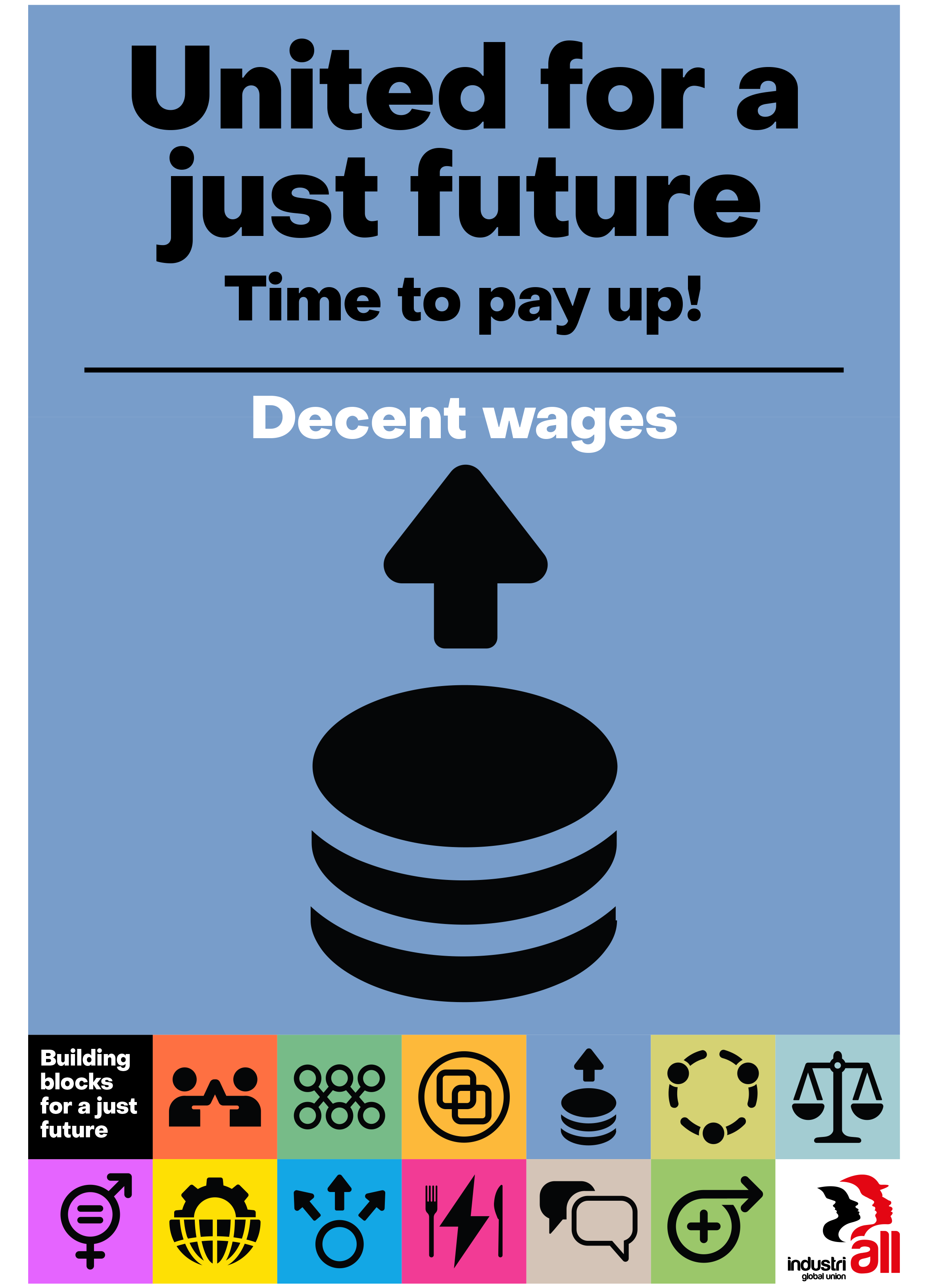 | 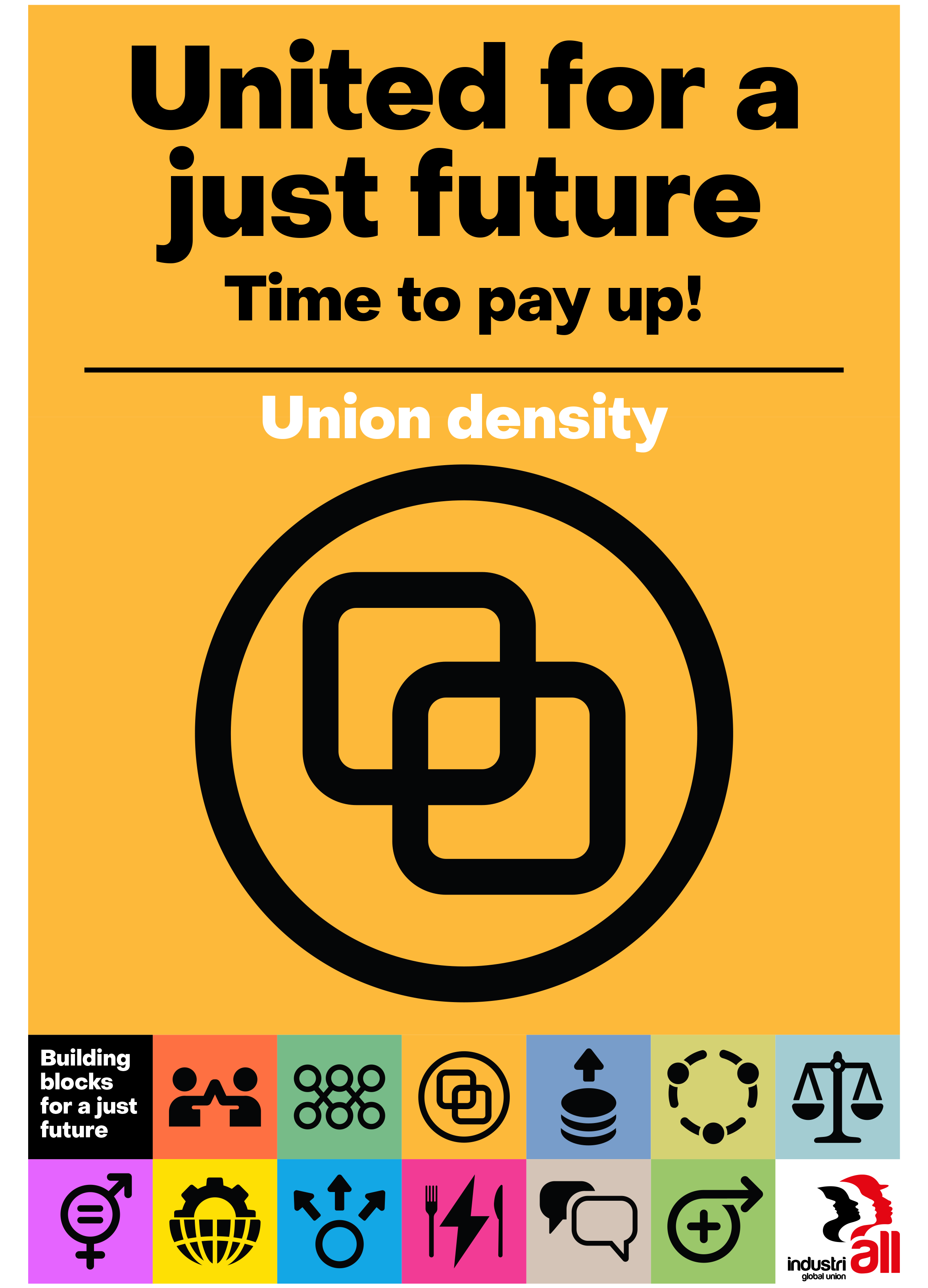 |
| ENG FRA SPA | ENG FRA SPA | ENG FRA SPA | ENG FRA SPA |
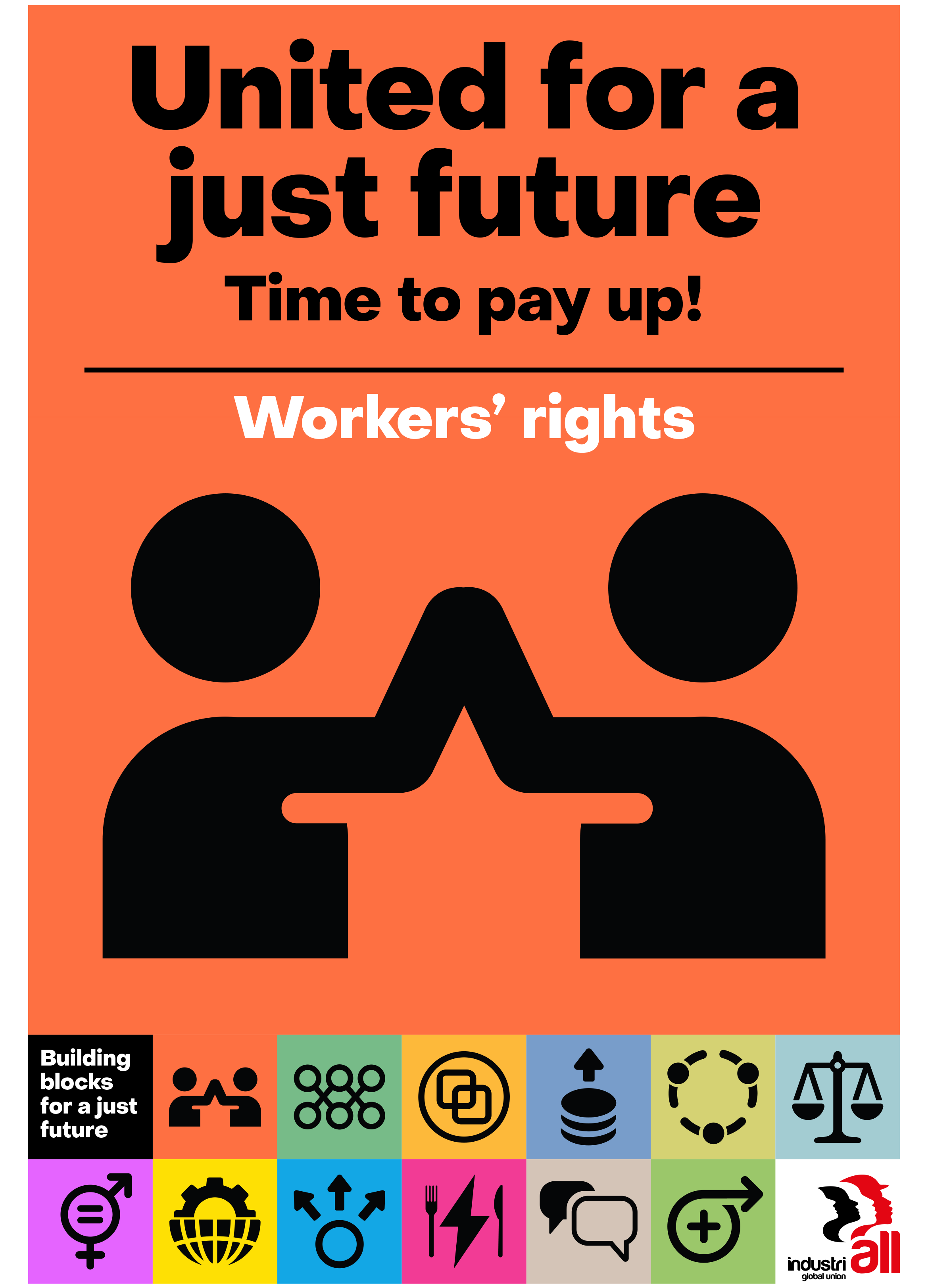 | 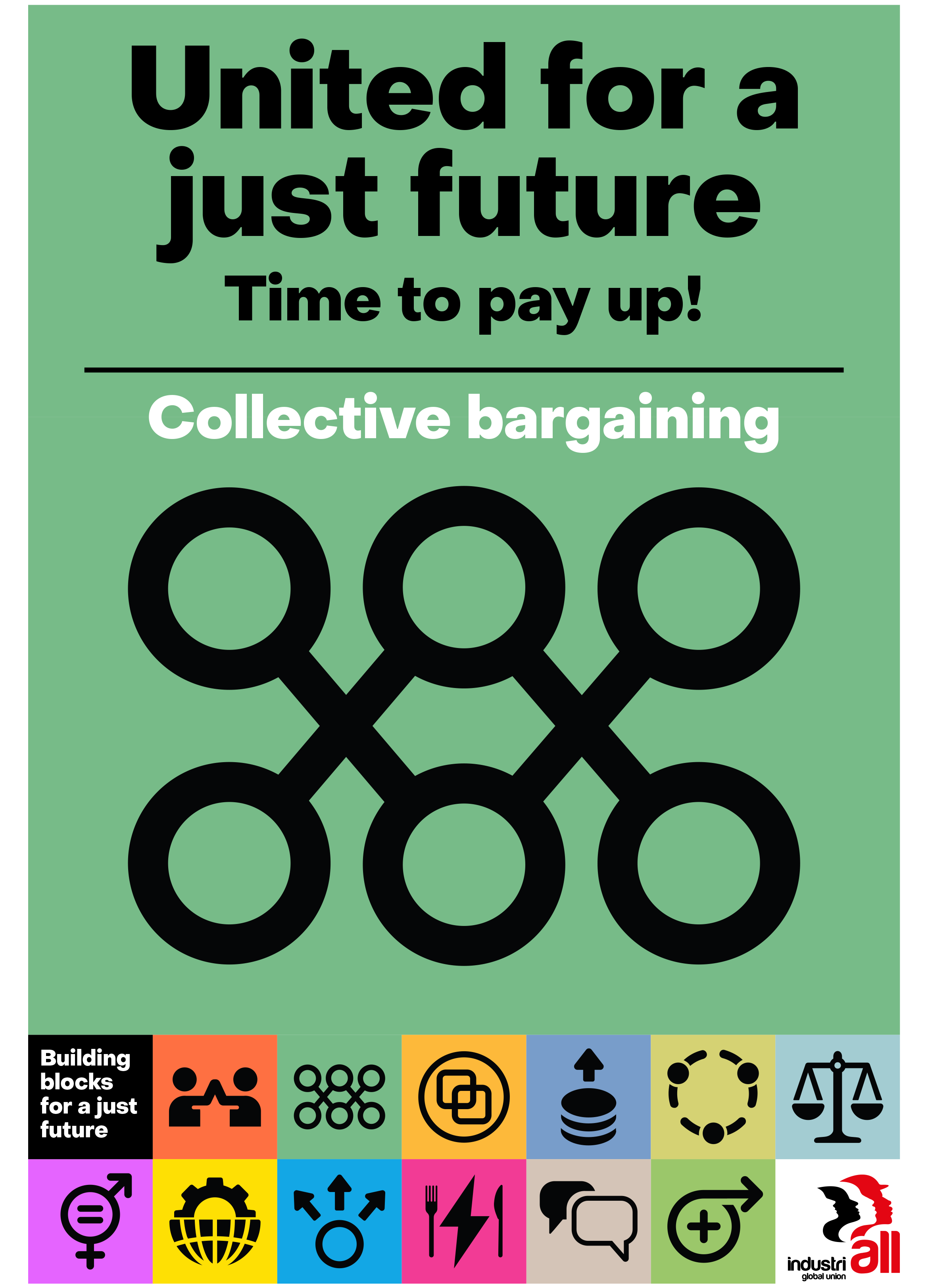 | 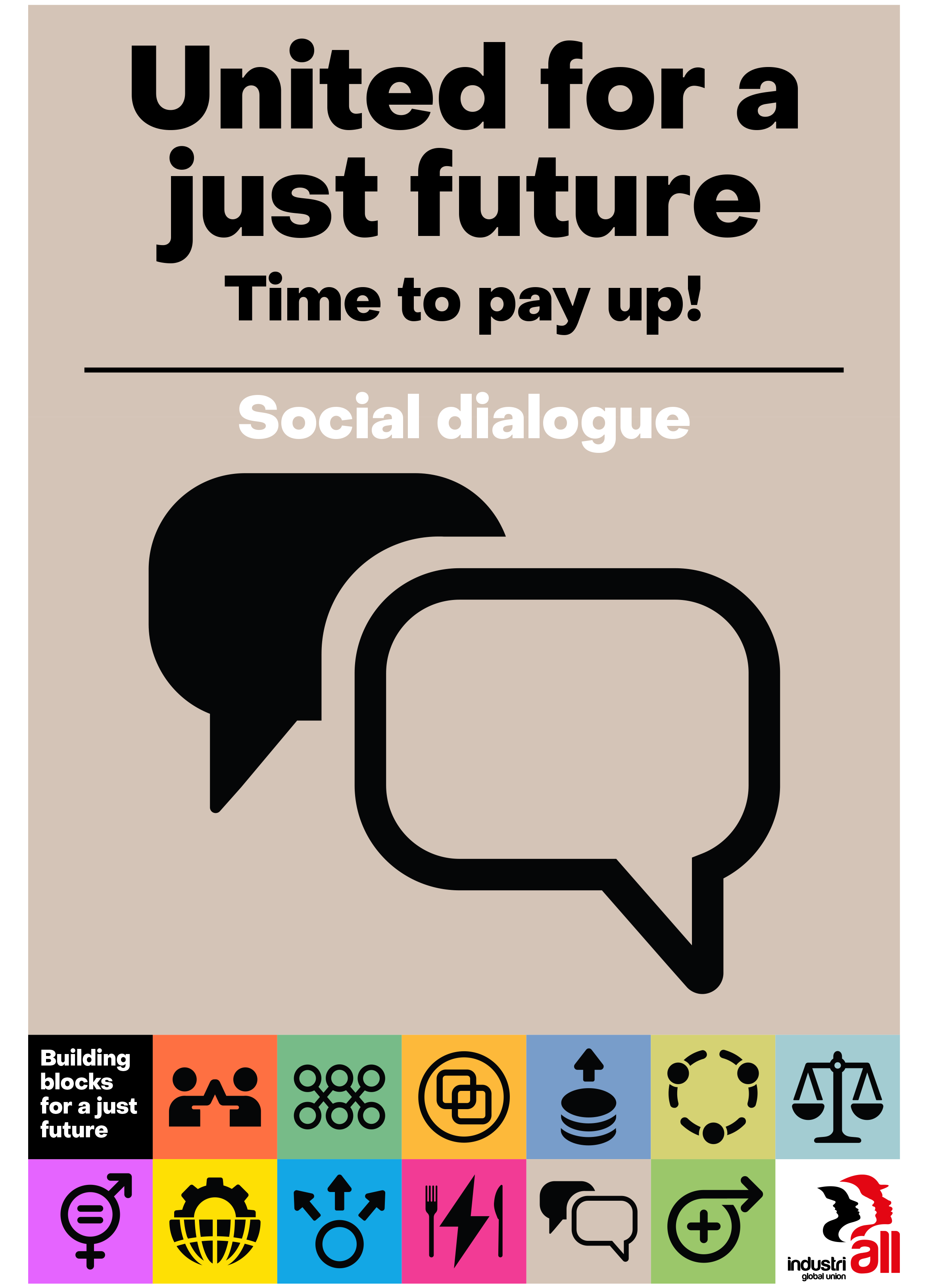 | 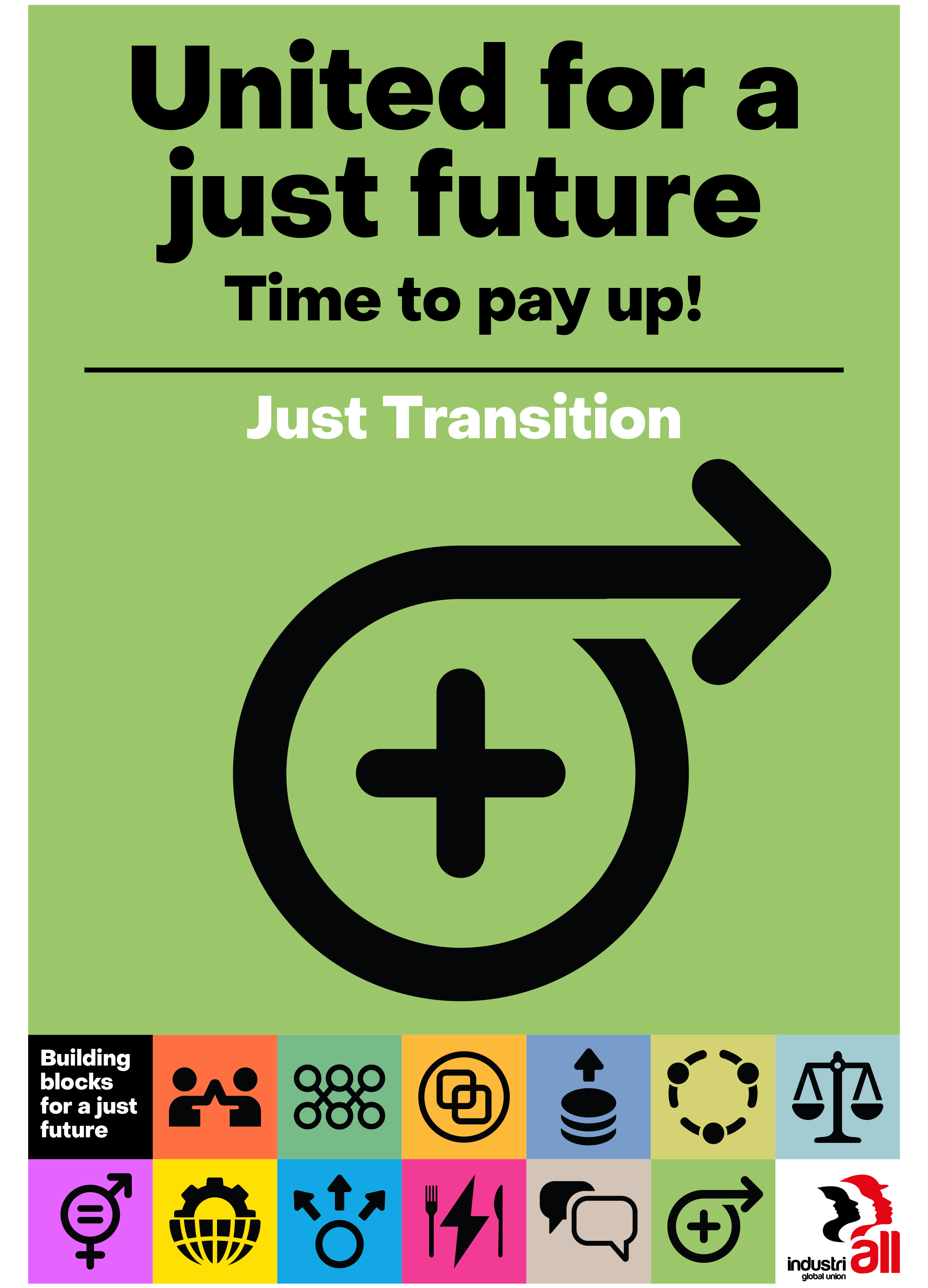 |
| ENG FRA SPA | ENG FRA SPA | ENG FRA SPA | ENG FRA SPA |
Background
Inequality is tearing the fabric of society apart
In the 1970s, something dramatic happened to the global economy: rising wages stopped tracking rising productivity. The neoliberal revolution decoupled the relationship between work and reward. Ever since then, workers have received a declining proportion of the wealth they create, while the rich have increased their share exponentially.
This economic model has infected our politics, and politicians have stepped away from their democratic mandate and left governance to the free market. Instead of trying to build successful societies, they have focused on bringing the market to more and more aspects of life. Trade unions have been attacked across the world, and the decline in our power has been matched by labour’s declining share of wealth.
This has caused a series of crises, including broken communities following deindustrialization in the West in the 1980s and 1990s, the financial crisis of 2008, a global crisis of democracy and the ongoing climate crisis. At every turn, workers have had to pay the price in the form of declining living standards. We are now seeing the fabric of our societies torn apart, with increasing casualization of work and attacks on unions. The failure of globalization to bring widespread prosperity has led to the revival of populist nationalism, threatening us with division and war.
The Covid pandemic was the final trigger that has tipped the world into spiraling inequality. If we do not take action, the march of progress will end and we will move backwards, through the large-scale inequality we last saw in the 19th century, until we become digital serfs on farms owned by big corporations. We now face a perfect storm of crises:
- Workers’ rights violations, attacks on unions and on democracy;
- The cost of living crisis, as inflation erodes purchasing power;
- The gap between productivity gains and wage growth;
- An unfair distribution of wealth, as the assets of billionaires balloon while essential services are underfunded and workers get below-inflation pay settlements;
- Jobs threatened by Industry 4.0 and climate change;
- The food security crisis caused by the war in Ukraine and climate change;
- Supply chain disruption affecting production in many countries;
- Waves of migration and refugees caused by economic collapse, climate change and war;
- The consolidation of new models of precarious work in many more sectors, through the widespread use of platform labour and management by algorithm.
